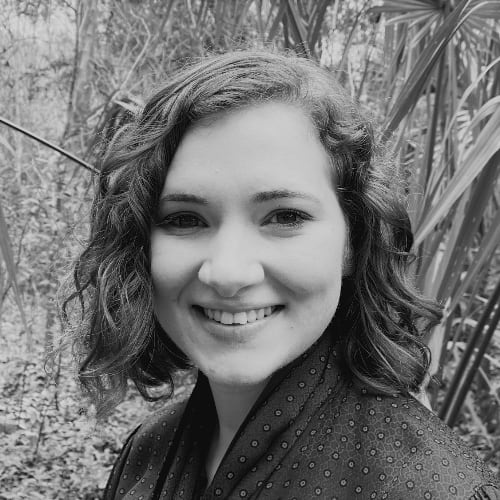Ancient History for Middle Grades
Required Materials:
Books and supplies are not included in the purchase of the course.
- Mills, Dorothy. The Book of the Ancient Romans. Brooklyn, NY: Angelico Press, 2007. ISBN: 1597313548
- Mills, Dorothy. The Book of the Ancient Greeks. Brooklyn, NY: Angelico Press, 2007. ISBN: 1597313564
- The Bible. (Any Translation)
- Note- the Memoria Press editions of the Mills’ books are also permissible. With some formatting differences, the content is the same.

Lauren Hartke
[email protected]Lauren Della Piazza Hartke is a third generation teacher, raised by parents who instilled in her a passion for history and literature. She graduated from a Christian high school before attending Geneva College in Beaver Falls, Pennsylvania. Lauren had the opportunity to study abroad in Scotland for a semester before obtaining a B.A. in History. As a teaching assistant at Geneva College she fell in love with teaching the humanities and accordingly went on to obtain an M.A. in Public History from Georgia Southern University where she also worked as a teaching assistant and a coordinator for the Ogeechee International History Film Festival.
Lauren’s abiding interest is in educating people of all ages in all matters of history, but her favorite eras are classical and medieval Europe. Her experience in both Christian and secular higher education made her consider her own pedagogy and preference for the classical model. She firmly believes that an education in the humanities enables us to better love God and love our neighbors.
Besides reading and watching old films, Lauren loves baking, traveling, playing the piano, and hiking. She and her husband Logan live in Jacksonville, Florida where they share a house with their cat, Katya. They love cooking for friends and family members, and can frequently be found at exotic grocery stores shopping for unique ingredients.
Quarter 1
- The Bronze Age
- Sumer and Mesopotamia
- Babylon
- Egypt
- Mycenaeans and Minoans
- Greek Mythology
- Troy
Quarter 2
- Sparta
- Athens
- Persia
- Greco-Persian War
- Peloponnesian War
- Greek art and architecture
- Alexander the Great
- The Hellenistic World
Quarter 3
- Etruscans
- Founding Myths and Kings
- Republican Rome
- Daily Life in Republican Rome
- Hannibal and the Punic Wars
- Roman Civil wars
- Julius Caesar and the Triumvirate
- Fall of the Republic
Quarter 4
- Caesar Augustus
- Life in the Roman Empire
- Jewish Revolt
- Early Christianity
- Trajan and Hadrian
- Diocletian
- Constantine
- Augustine and the Fall of Rome
![]() Computer: You will
need a stable, reliable computer, running with a processor with a speed of 1 GHz or better
on one of the following operating systems: Mac OS X with Mac OS 10.7 or later; Windows 8,
7, Vista (with SP1 or later), or XP (with SP3 or later). We do not recommend using an
iPad or other tablet for joining classes. An inexpensive laptop or netbook would be much
better solutions, as they enable you to plug an Ethernet cable directly into your computer.
Please note that Chromebooks are allowed but not preferred, as they do not support certain
features of the Zoom video conference software such as breakout sessions and annotation,
which may be used by our teachers for class activities.
Computer: You will
need a stable, reliable computer, running with a processor with a speed of 1 GHz or better
on one of the following operating systems: Mac OS X with Mac OS 10.7 or later; Windows 8,
7, Vista (with SP1 or later), or XP (with SP3 or later). We do not recommend using an
iPad or other tablet for joining classes. An inexpensive laptop or netbook would be much
better solutions, as they enable you to plug an Ethernet cable directly into your computer.
Please note that Chromebooks are allowed but not preferred, as they do not support certain
features of the Zoom video conference software such as breakout sessions and annotation,
which may be used by our teachers for class activities.
![]() High-Speed Internet Connection:
You will also need access to high-speed Internet, preferably accessible via Ethernet
cable right into your computer. Using Wi-Fi may work, but will not guarantee you the optimal
use of your bandwidth. The faster your Internet, the better. We recommend using a connection
with a download/upload speed of 5/1 Mbps or better. You can test your Internet connection here.
High-Speed Internet Connection:
You will also need access to high-speed Internet, preferably accessible via Ethernet
cable right into your computer. Using Wi-Fi may work, but will not guarantee you the optimal
use of your bandwidth. The faster your Internet, the better. We recommend using a connection
with a download/upload speed of 5/1 Mbps or better. You can test your Internet connection here.
![]() Webcam: You may
use an external webcam or one that is built in to the computer. Webcam Recommendations:
Good (PC only) | Best (Mac and PC)
Webcam: You may
use an external webcam or one that is built in to the computer. Webcam Recommendations:
Good (PC only) | Best (Mac and PC)
![]() Headset: We recommend
using a headset rather than a built-in microphone and speakers. Using a headset reduces the
level of background noise heard by the entire class. Headset Recommendations: USB | 3.5mm
Headset: We recommend
using a headset rather than a built-in microphone and speakers. Using a headset reduces the
level of background noise heard by the entire class. Headset Recommendations: USB | 3.5mm
![]() Zoom: We use a web
conferencing software called Zoom for our classes, which enables students and teachers to
gather from around the globe face to face in real time. Zoom is free to download and easy
to use.
Zoom: We use a web
conferencing software called Zoom for our classes, which enables students and teachers to
gather from around the globe face to face in real time. Zoom is free to download and easy
to use.  To
download Zoom:
To
download Zoom:
- Visit zoom.us/download.
- Click to download the first option listed, Zoom Client for Meetings.
- Open and run the installer on your computer.
- In August, students will be provided with instructions and a link for joining their particular class.
![]() Scanner: In this
class, students frequently submit homework assignments by scanning pages from their workbooks.
Students and/or their parents should have easy access to a scanner and the ability to use it.
Scanner: In this
class, students frequently submit homework assignments by scanning pages from their workbooks.
Students and/or their parents should have easy access to a scanner and the ability to use it.
Step 1
Step 2
Step 3
Step 4
Explore our courses!
First, read the available course descriptions, noting prerequisites, target grades, and course objectives. If you think your student is prepared for the course, go ahead and register. After registration, a placement assessment may be provided to students, depending on the course and the student’s previous enrollment with Scholé Academy. Registration is finalized when the student’s placement assessment has been returned by the course instructor with placement confirmation.
All Courses | By Grade
Read the Student-Parent Handbook.
Please take careful note of our teaching philosophy, our technology requirements, our school policies, the parent agreement, and the distinctions between our grade levels.
Double-check the course section dates and times.
Make sure they don't conflict with other activities in your schedule or other courses you are purchasing. Our system will not catch double-bookings!
You're ready to add course selections to your cart!
Our Assistant to the Principal will be in touch with you after your enrollment to help you with next steps, including any placement evaluations that may be required for your course selections.
This registration will be finalized when the student's placement assessment has been returned by the course instructor with placement confirmation.
